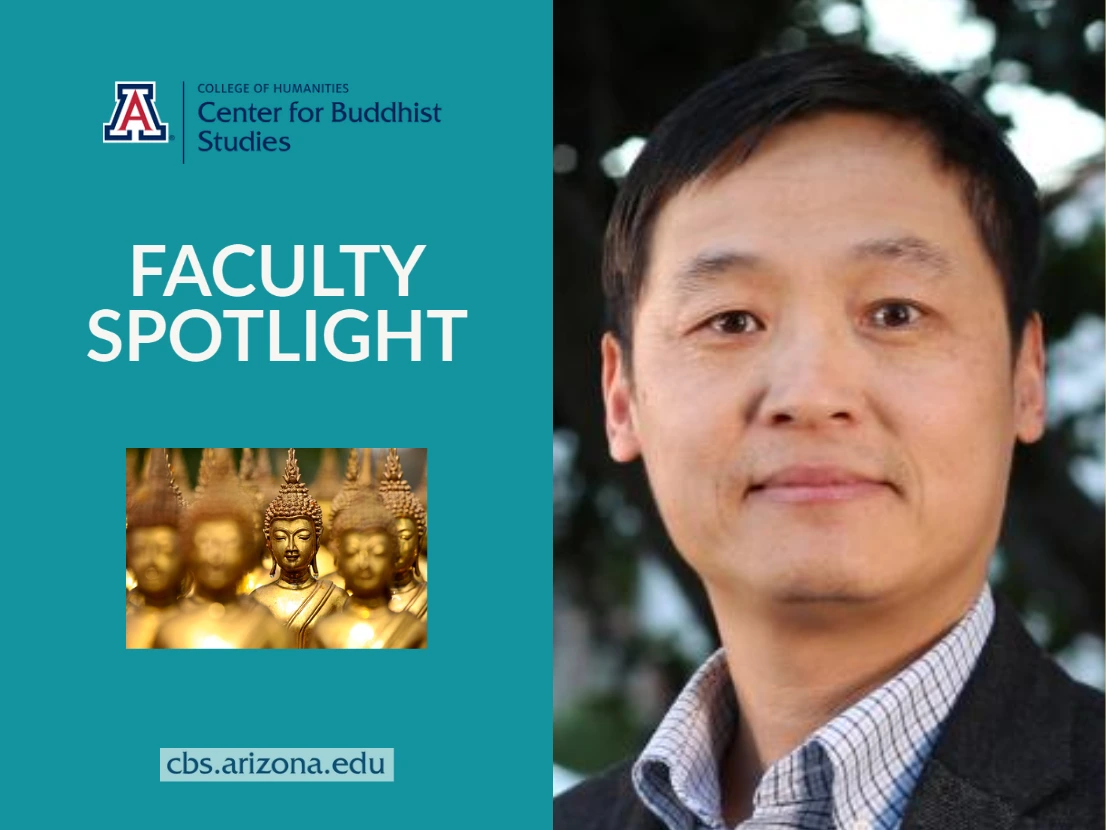
Despite the pandemic and the challenges of teaching in new configurations, our Center faculty members were productive in 2020, publishing numerous articles and books, presenting at conferences, and winning awards and grants. In this series of posts, we celebrate the achievements of the Center’s faculty and fellows.
Dr. Jiang Wu is currently a professor in the Department of East Asian Studies and director of the Center for Buddhist Studies. He received his Master's degree from Nankai University (1994) and Ph.D. from Harvard University (2002). His research interests include seventeenth-century Chinese Buddhism, especially Chan/Zen Buddhism, the role of Buddhist canons in the formation of East Asian Buddhist culture, and the historical exchanges between Chinese Buddhism and Japanese Buddhism. Other interests include Confucianism, Chinese intellectual history and social history, and the application of electronic cultural atlas tools in the study of Chinese culture and religion.
In 2020, Prof. Wu’s article “Performing Authenticity: Li Zhi, Buddhism, and the Rise of Textual Spirituality” appeared in the book The Objectionable Li Zhi: Fiction, Syncretism, and Dissent in Late Ming China, co-edited by Rivi Handler-Spitz, Pauline Lee, and Haun Saussy (Seattle: University of Washington Press). The paperback version of Spreading Buddha's Word in East Asia: The Formation and Transformation of the Chinese Buddhist Canon, edited by Prof. Wu and Lucille Chia, was released by Columbia University Press in 2020 as well.
On October 27, 2020, Prof. Wu presented a talk at the Tucson Humanities Festival titled "How Buddhist Studies Engage Social Justice" in a PechaKucha discussion on the theme “Toward Justice For All: The Global Impact of Humanities Research.” On December 4, 2020, Prof. Wu presented online at a research seminar organized by the French Society of Japanese Studies, Université de Paris as part of a multiyear project titled: “The Kyushu and its environment in premodern period (16th-19th century), a crossroad of men, goods, knowledge and technology.” The title of Dr. Wu’s presentation was “A Closer Look at Kyūshū’s Early Modern Connection with Chinese Buddhism: Regional and Local Perspectives from Hangzhou杭州 and Fuqing福清.”
For more information about Prof. Wu’s interests and publications, please visit: https://eas.arizona.edu/people/jiangwu.

